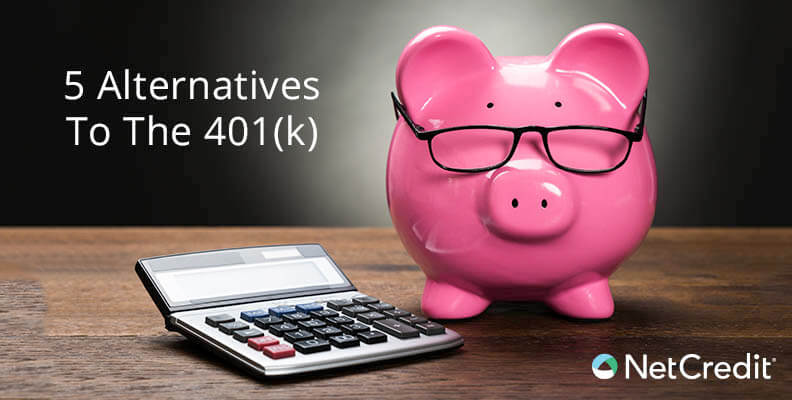So your employer doesn’t offer a 401(k). While there are several obvious benefits to this common retirement plan (including easy set-up and the possibility of matching contributions from your employer), that doesn’t necessarily mean you’re out of luck when it comes to saving for retirement.
Here are five alternatives to the traditional and Roth 401(k).
1. Traditional or Roth IRAs
IRA stands for “individual retirement account.” If you’re under 50, you can contribute up to $5,000 to these accounts per year. Much like 401(k)s, IRAs come in two varieties: traditional and Roth. A traditional IRA offers tax benefits now rather than later, which means that any contributions you make are tax-deductible. A Roth IRA offers tax benefits later; while contributions are not tax-deductible, any withdrawals you make during retirement are tax-free. There are a number of eligibility requirements for a Roth IRA, so make sure that you qualify before setting one up.
2. SEP IRAs
If you do any freelance work or own your own business, the SEP IRA (Simplified Employee Pension Individual Retirement Account) is an option. SEP IRAs follow rules similar to traditional IRAs, which means you’ll see tax benefits now rather than later. A business of any size can establish an SEP and make tax-deductible contributions, so this is a viable option even if you’re running a one-man shop.
3. Variable Annuities
According to the SEC, a variable annuity is a contract between an investor and an insurance company. As the investor, you purchase a variable annuity through either a single payment or series of payments, and the insurance company agrees to make periodic payments to you either immediately or at some future date — in this case that date would likely be after retirement. Many financial investors warn of the high fees and tax penalties involved with variable annuities, so be sure to clarify the terms before making an investment.
4. Index Funds
Index funds are investment funds that are based on an index of stocks like the S&P 500 or the Dow Jones. When you invest in an index fund, you’re essentially buying and holding the securities that make up that benchmark, and your investment will reflect the performance of that index. With index funds, you’re investing in a piece of every asset in that index rather than choosing and maintaining one single stock.
5. Encourage Your Company to Offer 401(k) Plans
The above are reasonable alternatives (or additions) to the 401(k). However, if you’re dead set on the automation and employer benefits of a 401(k), it’s worth bringing that to your employer’s attention. If your coworkers are also gung-ho about 401(k)s, you might be able to sway your employer to establish retirement plans. If you’re planning on staying with this employer for years to come, it might be worth mentioning that many smaller companies offer employees 401(k) plans after one year of employment.
Want more information for all phases of the retirement savings process? We have retirement advice for Millennials and tips for those getting a late start on nest egg contributions.






